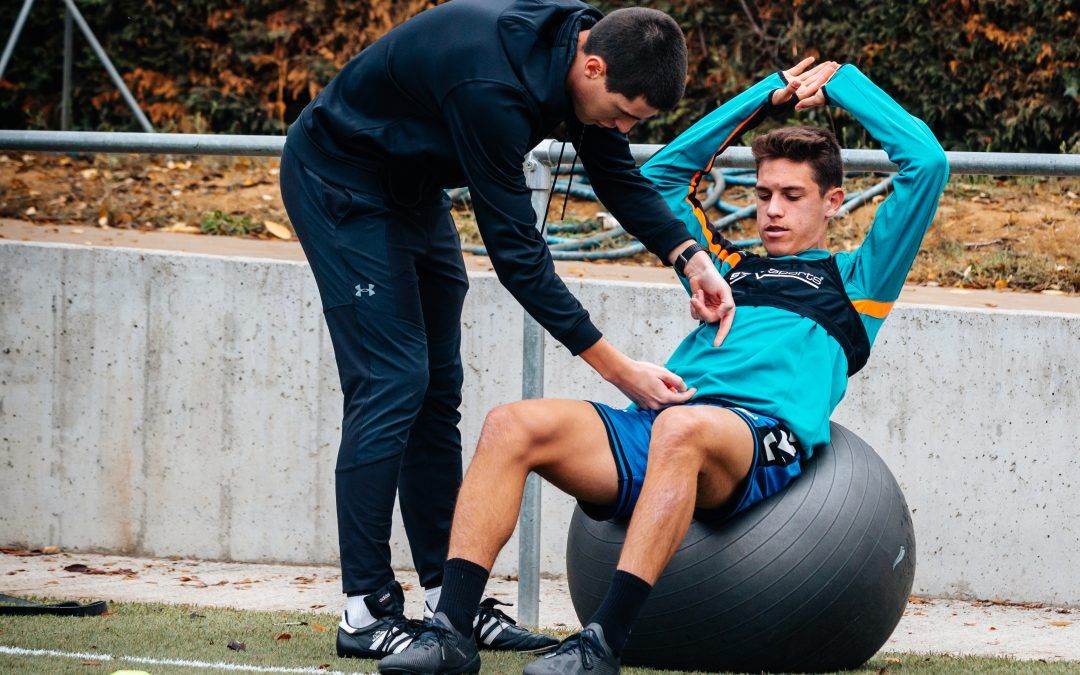Why is it important for football players to train during the summer?
2020 has been an exceptional year. In normal seasons, we would now be entering the transitional or off-season period, which normally occurs during the summer. This period has negative effects on footballers due to detraining with important consequences in terms of decreased performance and the increase of the risk of injury factors.
This year, these consequences can be accentuated due to the effects of COVID-19 and the difficulties for athletes to carry out structured and planned training. Normal transitional periods tend to last between five and seven weeks, and this year it will last between twelve and twenty weeks.
Carrying out a good preparation before starting the preseason will allow footballers to:
- Get a better role within the team. For some, their performance during the preseason will directly influence the technical staff’s decision on whether to stay in the team or not. For others, it will determine the role they will have within the team, both for the footballers who arrive and those who will have to fight to maintain his role.
- Tolerate workloads. Reaching the preseason in adequate physical condition will allow the footballer to tolerate workloads during the preseason.
- Minimize the risk of injury. A good general conditional level can directly reduce the risk of injury at the start of the preseason, therefore it is necessary to avoid increases in loads in a very significant way. So it is a good strategy to prepare for the preseason during the transition period.
What risks can footballers suffer if they do not prepare properly?
- Risk of injury. As we have mentioned above, during these long detraining periods, a higher risk of injuries has been observed in the return to high intensity sports, which is why this period is key to the evolution of the following season, being of great importance an adequate planning of all the necessary content, points out the technical director of bewolfish and Doctor cum laude in Sports Science from the UdG Faculty of Medicine, Professor of CAFE, Physiotherapy and the Master of Readaptation of EUSES, Marc Madruga.
- Performance decline during the season. Players who do not take advantage of the summer to workout, improve and prevent injuries, end up paying for it with a decrease in their performance during the season, either due to fatigue, injury, or because their colleagues who have worked are in better conditions, asserted Toni Caparrós a year ago in our magazine, professor at the Department of Health at INEFC in Barcelona and physical trainer for professional basketball players for the ACB, the Spanish national team and the Memphis Grizzlies.
- Specific football deficiencies. As Jordi Balcells, physical trainer for Girona FC, Sevilla FC and RCD Espanyol explains to us, “a large part of the footballers have trained at home during the lockdown under the coaching staff indications. It has allowed them to be in a good physical condition but the specific training has been missing”.
* They will not have been able to do high-intensity distance work due to lack of space
* They could hardly have done any acceleration, deceleration, change of direction…
* They have been training on a surface that has nothing to do with the grass field
* Collaboration/opposition situations could not be reproduced with elements specifics to the sport, such as decision-making based on peers, opponents …
* They have been able to carry out specific technical actions specific to the sport, such as passes and driving.
What type of training has to be followed during the preseason?
The elements that football players would have to work on during a normal transitional period, and which are especially important this year due to the exceptional situation we are experiencing, according to Jordi Balcells, are:
- Maintain an adequate anthropometric composition to better tolerate workloads and avoid injuries, through a set of nutritional guidelines.
- Try to maintain adequate strength values, since if we have a good base structure, it will be easier for us to execute specific movement patterns adequately when coming back to training. That is, to prepare the different structures to perform specific high actions that requires each sport.
- Football is an intermittent long-term sport with a wide range of actions and manifestations. For this reason, it is not enough to go running or cycling, since football is not a sport that requires cyclical movements and, therefore, the football player will be in good physical condition but not adequate for the actions that will have to carry out on the field. It would be a good strategy to execute different types of endurance training in order to improve its levels – HIITS, RSA…- always scheduled and planned by professionals of the technical staff.
Likewise, according to Madruga, during this period footballers can also work on content-oriented at:
- Improving the athlete’s weak points
- The continuation of injury rehabilitation programs that have occurred during the season and that require a longer period of work
- Injury prevention and recurrence prevention
- Ensure return to sports practice under optimal performance conditions by minimizing the effects of a hasty lap at high training loads.
- Introducing actions with greater ranges of freedom, accentuating perceptual and creative structures, from a holistic perspective and enhancing skills that can be decisive in improving performance during the season, since it is a training period with less cognitive stress.

This work has to be individualized and following the basic principles of training, since all the players’ variables have to be taken into account such as age, sport, club, category, previous injuries, available material as well as the environment in order to guarantee proper and personalized planning. At the same time, it is necessary to have both physical and cognitive rests, as well as introducing adequate nutritional habits to recover the state of all the athlete’s abilities.
This atypical end of the season has generated a lot of uncertainty in the type of work to be carried out and how to organize workloads as well as the appropriate content for each athlete during this period. Therefore, an exhaustive analysis of the athlete becomes more important, for instance, evaluating the range of motion, strength, power, neuromuscular control and neuromuscular skills, in order to establish individualized content, reduce imbalances and increase the performance of weak points detected.
Where can football players train during the summer?
At bewolfish, we offer specific training sessions for footballers this summer to work on the elements mentioned above, combining individualized training sessions and group training on the field. A pre-season work that we repeat after the success of previous editions in which we have prepared footballers of different categories and after participating in the Nike Pro Campus where we carried out functional evaluations for footballers and training talks. If you want more information about pre-preseason training with bewolfish, you can contact us through the following email: hello@bewolfish.com.





